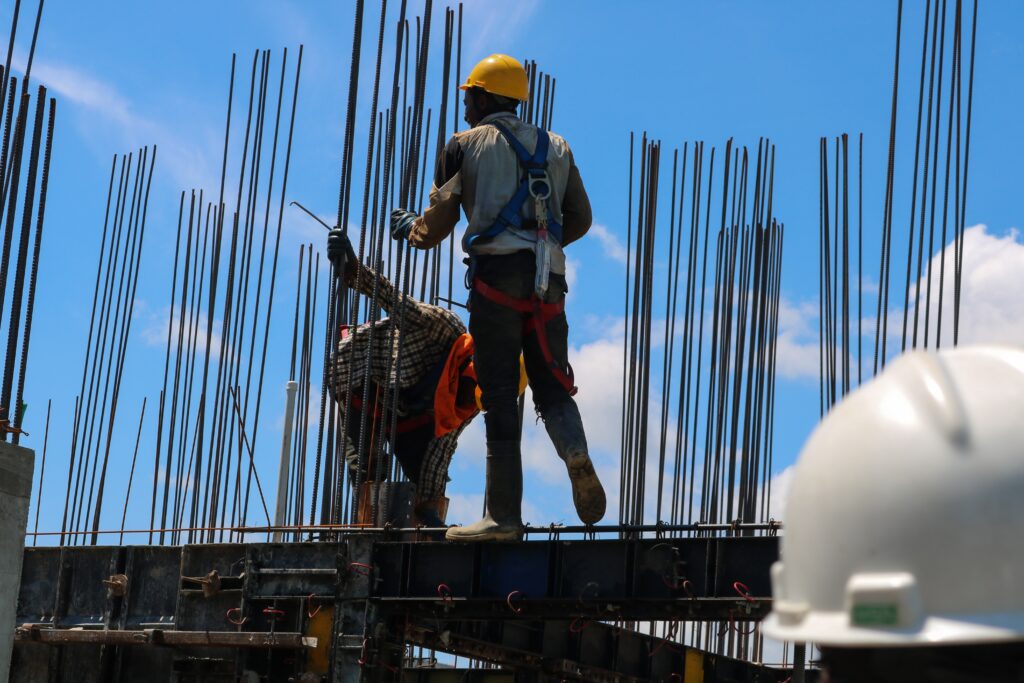In our conversation with Emily Cooke we learned that people are unlikely to seek support from their MHFA. The findings from Emily’s research are important, as it encourages us to look further than just MHFA and tickbox training as a tool to combat mental ill health in the workplace.
We hope you enjoy our conversation with Emily as much as we did.
Hello Emily, can you tell us a little bit about why you started looking at mental health in the construction industry?
My first role out of university was as a recruitment consultant in Melbourne, where I primarily operated in the construction industry. It’s an industry I find fascinating from a personal standpoint and I loved seeing my clients’ projects going up all around the city. It became very evident that it could be a pretty volatile industry at times and I’d spend a large majority of my time speaking to candidates who were looking to leave their roles because of poor line management, lack of job security or other factors. When I decided to pursue my Masters, I knew the construction industry was one that I wanted to focus my research on and to ask the question “how do we make this better?”.
Why is that there are higher levels of mental ill health in the construction industry specifically do you think?
Construction workers are subjected to a high number of work stressors. The industry itself is both transient and unpredictable by nature and is often accompanied by inflexible project timelines and hostile working environments, each of which can negatively impact the wellbeing of workers. Research in organisational psychology has consistently shown that shift work, high job demands, work stress and low job control, and job insecurity are significant risk factors to employee wellbeing, and all of which are prevalent characteristics of construction work. Another defining characteristic of construction work which is consistently linked to poor mental wellbeing is the ‘macho’ culture, which can negatively impact someone’s willingness to seek support.

What surprised you the most about the research findings?
I think an interesting finding was that of all help sources presented to participants (including friends, family, colleagues, an EAP, GP and MHFA), people were least likely to seek support for mental health issues from a Mental Health First Aider (MHFA). This was partly expected, as I hypothesised that construction workers would indicate a preference for support from informal versus formal help sources. However, it highlighted a need for companies in the industry (and others) to consider the way they’re implementing MHFA as a strategy. Fundamentally, it was not designed to be a support source but to improve people’s mental health literacy. The research highlighted the importance of advocating and improving peer support in the workplace, mental health education for all staff (not just those interested in it) and prioritising line manager training.

How do you think this pandemic might influence the mental health of those working in this industry?
Not dissimilar to other industries impacted by COVID-19, many of the existing risks to mental health have been exacerbated over the past few months. The furlough scheme will have caused many workers to feel uncertain about the security of their jobs. It will have also placed a huge amount of financial strain on those who were the sole breadwinners for their households during the pandemic. Secondly, it’s well known that traumatic events can increase addictive behaviors like alcohol consumption, so the current pandemic is particularly concerning. The Randstad report “taking down the walls around mental health in construction” (2017) highlighted the significance of self-medicating in response to stress among construction workers, so the huge job losses, mandatory work from home (WFH) orders and furlough scheme may trigger or exacerbate substance use disorders. For those that have returned to work, I’m sure it comes as a relief that they’ve been able to get back to it. However, there will be some that have enjoyed being able to slow down and dedicate more time to their families and self-care, which the return to work directly puts under threat. The nature of construction work, particularly for those that work on site, means that phased returns and flexible working arrangements are likely to be less achievable than traditional office-work, especially as many firms have had to cut jobs and may not have the luxury of a rich workforce.
Do you think the approach to supporting those in the construction industry needs to change?
I think that larger contractors are setting better examples and employing more well-rounded strategies to support workers’ wellbeing. MHFA is still being heavily implemented, but I’m noticing that companies are beginning to really examine the way it’s being introduced, how those individuals are supported and their skills are refreshed. The real concern is for the smaller to medium businesses who don’t necessarily have the resources or expertise to implement a successful wellbeing strategy. Wellbeing doesn’t have to cost a lot of money, and research shows that for every £1 invested the business can expect to see c.£5 return by way of increased worker performance, reduced sickness absence and decreased turnover. Using resources like the Stevenson-Farmer report is a good place to start and making sure that you’re not just ticking boxes (e.g. “We’ll just train 20 MHFA’s”). Ask employees what they actually want; you can do this easily by circulating a survey and holding focus groups. Then, focus on upskilling line managers as a first step.
Thank you to Emily for coming on and sharing her wisdom! If you would like to connect with Emily yourself, you can find her on LinkedIn.








